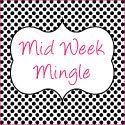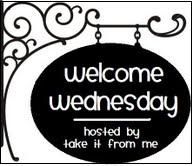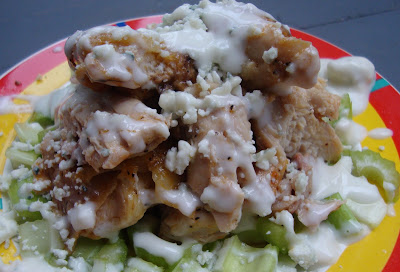
My blood pressure went skyrocketing in recent months, unbeknownst to lil' ol' moi. And so I'm going to be a bit long-winded today (it's been awhile, hasn't it???) with a cautionary tale.
I had always known high blood pressure to be a sneaky entity which put one's health at risk with no warning signs ... I was wrong. There can be symptoms when the situation is critical enough, but I hadn't been aware of that. And so I hope perhaps my little saga might inform or educate someone else who can benefit from it.
I'm someone who never gets sick -- the last time I had the flu was my senior year of high school, and I took care of someone who had the Norovirus at Christmastime but I didn't even catch so much as a sniffle from that nasty bug. I'm prone to sinus infections beause of seasonal allergies, but not actual illnesses.
And while I am, indeed, the poster child for
osteoporosis (very small frame, Caucasian, rampant family history), I am
not someone you'd consider a candidate for high blood pressure. It's much more prevalent among African-Americans, people who are overweight (I'm told nearly daily that I "should have a little more schmaltz on my bones"), and people who smoke (my sole contact with cigarettes has always been to remove them from my presence). My only risk factor was family history.
But beginning in January, I started having periodic episodes of skull-crushing headaches and nausea.
Was my immune system -- a source of such great pride to me! -- finally being compromised by my stress levels as I meandered through the telenovela that is my life??? This would be a new phenomenon, since my life has been a telenovela for years and years and I've always still been healthy.
I noticed that these episodes were tied in to very specific stressful instances in my personal life, rather than a generalized condition. And I finally went to the doctor during one of them, determined to figure out why I kept getting sick and why the symptoms were always the same. After all, shouldn't there be some variation in the viruses and bacteria I was falling prey to?
At that appointment, per the standard protocol, the medical assistant took my blood pressure.
It was 188/110.
For those of you who don't know what these numbers mean, my blood pressure has always been "textbook perfect" at 120/70. At 188/110, I was in a state known as "
hypertensive crisis", described below by the
Mayo Clinic:
"A hypertensive crisis is a severe increase in blood pressure that can lead to a stroke. Extremely high blood pressure — a systolic (top number) blood pressure of 180 millimeters of mercury (mm Hg) or higher and a diastolic (bottom number) blood pressure of 120 mm Hg or higher — damages blood vessels. They become inflamed and may leak fluid or blood. As a result, the heart may not be able to pump blood effectively.
.... An urgent hypertensive crisis is when your blood pressure is extremely high, but your doctor doesn't suspect you have any damage to your organs. Signs and symptoms of an urgent hypertensive crisis may include:
- Increased blood pressure
- Severe headache
- Shortness of breath"I had each of those symptoms.
It was clear: the situation I was sorting out and finally resolving, to which I could directly tie my episodes, might literally kill me.
And so, I took certain steps like starting to take medication (2 different ones, actually), and removing myself from the stressful situation entirely (my BFF Wendy interceded on my behalf to finish some interactions). And I gave up potato chips, which I adore.
I researched ways to modify my diet to see if that could help as well. My salt intake was already low, and people have often asked for salt shakers to sprinkle a little bit extra on food I'd prepared because they were accustomed to using far more.
In doing my research, I was reminded of the
DASH Diet, which is an acronym for "Dietary Approaches to Stop Hypertension." It encourages:
- Eating more fruits, vegetables, and low-fat dairy foods
- Cutting back on foods that are high in saturated fat, cholesterol, and total fat
- Eating more whole grain products, fish, poultry, and nuts
- Eating less red meat and sweets
- Eating foods that are rich in magnesium, potassium, and calcium
I bought bananas, for their potassium. I started taking magnesium supplements in addition to my prescriptions and my multivitamins and my calcium pills.
There was virtually no room for improvement on the fruits, vegetables or low-fat dairy foods (no-fat being my usual preference for milk and yogurt). I also eat whole grains almost exclusively, though I can't deny that I have 32 sweet teeth rather than only 1 sweet tooth! I also found that drinking green tea could be beneficial, so I made pitchers of it to have ready in the refrigerator.
With all of that tea loitering around, it only seemed natural to devise a recipe that would incorporate it. Poultry? Yup. Spices for flavor? Yup. Green tea? Yup.
And if I may say so myself, this was so good that you'd never know it had virtually no salt! Served with lots of fresh fruits and vegetables, it's a dish that won't make you feel deprived or as though you're on a special diet.
Oh, and how is my blood pressure now, after waging war against it???
At my last check-up, it was 122/74 ... :)
Tea & Spice Marinated Chicken4 chicken thighs (skinless, if you prefer)
1 cup green tea, chilled
1/4 cup pomegranate molasses
1/4 cup balsamic vinegar
juice of half lemon
1 teaspoon shawarma spices (available at Middle Eastern markets; substitute 1/2 teaspoon garlic powder, if necessary)
1 teaspoon ginger
pinch of kosher salt
1/4 teaspoon cayenne pepper sauce
Place the chicken into a strong gallon-sized baggie. Combine the remaining ingredients and pour over the chicken. Marinate the chicken for 8 hours or more.
Drain the chicken and place the pieces skin-side down into a large skillet. Cook over medium heat for 10 minutes until nicely browned; turn them over, cover the pan, and cook for 20 more minutes.
Serves 4.

















































